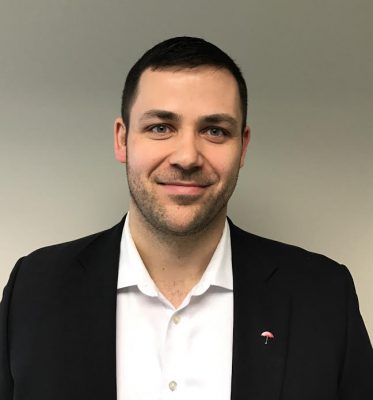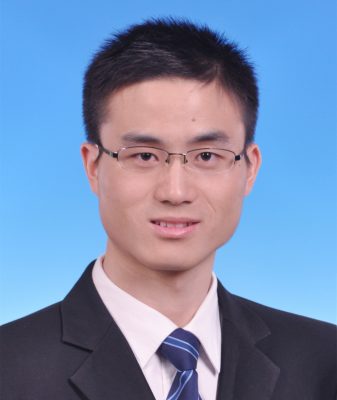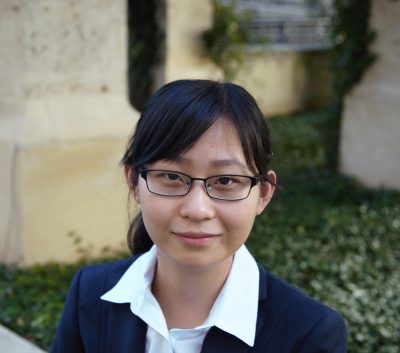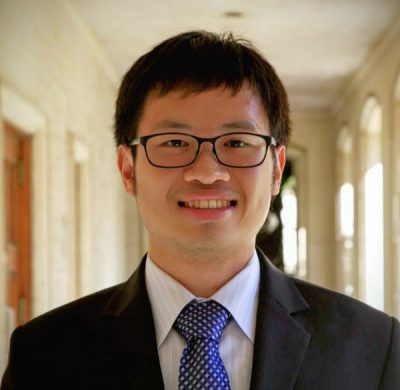 Adjunct Professor Stephen Fitzgerald didn’t always see himself as a teacher. He completed his undergraduate career as a Management Information Systems (MIS) major, was hired at PwC to work in Risk Assurance, and had a series of odd jobs before deciding to return to school here at UConn. “Whether I was at PwC with new hires or at HuskyTech during my undergrad, I realized that the times when I was most at home, in flow, comfortable, and felt the most gratification was when I was sharing my knowledge with other people.” It was this self realization that inspired him to return to UConn to pursue a degree in Curriculum and Instruction through the NEAG School of Education. “The best part about my job is I essentially get paid to learn all of this stuff, distill it down to my own words, and tell them about all of the interesting stuff I am learning about. I get paid to learn which is super awesome.”
Adjunct Professor Stephen Fitzgerald didn’t always see himself as a teacher. He completed his undergraduate career as a Management Information Systems (MIS) major, was hired at PwC to work in Risk Assurance, and had a series of odd jobs before deciding to return to school here at UConn. “Whether I was at PwC with new hires or at HuskyTech during my undergrad, I realized that the times when I was most at home, in flow, comfortable, and felt the most gratification was when I was sharing my knowledge with other people.” It was this self realization that inspired him to return to UConn to pursue a degree in Curriculum and Instruction through the NEAG School of Education. “The best part about my job is I essentially get paid to learn all of this stuff, distill it down to my own words, and tell them about all of the interesting stuff I am learning about. I get paid to learn which is super awesome.”
Professor Fitzgerald is currently teaching three Operations and Information Management (OPIM) courses; Business Information Systems, Operations Management, and Advanced Business Application Development. With Advanced Business Application Development, he was given the freedom to design and teach the course the way he wanted to. The course mostly involves teaching programming languages such as C# and Unity. What keeps him the most interested in information systems is the efficiency of programs and technology. Technology makes his job easier and their construction is “lean and makes sense.” Although he finds information systems “fascinating and elegant” in the way it works, he keeps an open mind towards the future of his teaching career and where that may take him. As long as his job can be learning and that learning can be shared with other people, he will find satisfaction.
“Giving people things that are relevant to them and skills that they can use in other parts of their lives, regardless of whether or not they are going to pursue OPIM or business in general,” is his favorite part of teaching. Being able to see the moment that students are able to make connections and understand concepts is rewarding for professors like Fitzgerald, who even spend their time outside of the classroom teaching. Fitzgerald is always researching ways to improve his teaching and he tries to stay involved in the OPIM Department by conducting workshops. Last semester, Fitzgerald conducted three workshops on Blockchain, Virtual Reality, and Artificial Intelligence. This semester he is teaching two more on How The Internet Works and Emerging Technologies Disrupting the Business World.
As someone who attended UConn, worked in the field, and discovered his passion, Fitzgerald is a great mentor to UConn students looking to explore career paths. His advice to students is to stay curious. “I think the easiest way to fall behind or lose interest is to not be constantly learning new things about technology and how to do our jobs better. Not only will you lose interest but you will fall behind. Stay curious and keep up on what’s new because it’s changing faster than we can teach it and the onus is on the student to take that into their own hands.”
Professor Fitzgerald is very thankful for the opportunities that the University of Connecticut has given him. He was able to teach a course last semester, and after his success he has the opportunity to teach more. With his remaining year as a graduate student, Professor Fitzgerald hopes to remain an active, influential member in the Operations and Information Management Department.








